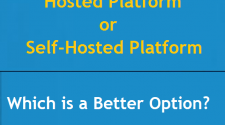It takes a unique type of person to practice as a social worker. The discipline has diversified into multiple specialties, including child protection services and drug and alcohol recovery programs, More recently, social workers are even taking places in the C-suite of corporate settings, as explained by National Association of Social Workers executive Jennifer Thompson in an article for Newsweek.
However, social workers with more advanced training can also be found working in a multitude of other specialist settings, such as clinical/psychotherapeutic social work, psychiatric social work, medical social work, pediatric social work, gerontological social work, hospice and palliative social work, military social work, forensic/criminal justice social work, or private practice; the list is a lengthy (and growing) one. Nevertheless, a consistent pairing of two overriding capabilities can be discerned in each of them.
Social workers bring a rigorous methodology for analyzing the functioning of existing social formations – from community cultures to local neighborhoods and the individual families and people embedded within them – and a compassionate outlook on how problems within each of these entities can be overcome or significantly ameliorated.
Here is a look at how social workers with entry-level qualifications can advance their careers into the specialties that most strongly draw their interest. The key to progression lies in earning a more advanced degree, but the good news is that those with existing work and family commitments don’t have to sacrifice either to get the credentials they need to progress. Let’s see how.
Can an advanced online degree advance your social work career?
Several well-established and reputable brick-and-mortar universities, such as Spalding University, have been offering busy professionals with full workloads new career advancement opportunities with a higher-tier qualification than the entry-level Bachelor of Social Work (BSW) qualification.
They are accomplishing this by offering the entire program for study online, allowing people with family obligations, financial commitments and busy working lives to study from the comfort of their own homes. The programs are designed to be completed around existing commitments, not instead of them.
An advanced online social work degree from Spalding University such as the Master of Social Work (MSW) qualification can, for all intents and purposes, be seen as a career-building strategy. Trained social workers with the BSW entry-level qualification can progress to more senior and specialized roles within the profession upon gaining their MSW degree. These roles not only grant them more leadership influence in their agency or work setting of choice but also require a higher tier of training to enter.
In addition to the specialties mentioned in the introduction, the MSW degree equips social workers who successfully earn it to become executive directors or senior administrators of their chosen agencies.
While it is true that increased authority must be accompanied by a heightened sense of duty and responsibility as well as deeper expertise, it is also true that this advanced credential brings with it very attractive financial rewards.
For example, a social worker holding a BSW degree and working with children, families or in a school setting can expect to earn an average salary of $45,281; with an MSW degree, this leaps to $67,400.
Similarly, a medical social worker with a BSW qualification can expect to earn $58,139 per year, but this climbs to $67,545 with an MSW degree. Of course, the roles occupied by MSW graduates tend to include more complex duties. Those wishing to specialize as Licensed Clinical Social Workers can expect an annual salary of $75,855, but this specialty is only available to professionals who have earned an MSW degree or higher.
The MSW equips its graduates with enhanced critical thinking skills and the capacity to draw on research methodologies to improve evidence-based practices in core areas such as engagement, assessment, intervention and evaluation. Holders of the MSW credential will stand out from other candidates with more limited experience and less advanced qualifications.
Moreover, the degree equips those who have earned it to go beyond the arts of interpersonal communication and understanding. It extends to encompassing the wider cultural, social and political contexts in which such relationships are embedded. Social work intervention thereby becomes informed by more theoretically sophisticated and multidimensional perceptual frameworks. In effect, practice extends beyond face-to-face interactions with clients and colleagues to encompass effective interactions with community leaders, policy makers and funders.















